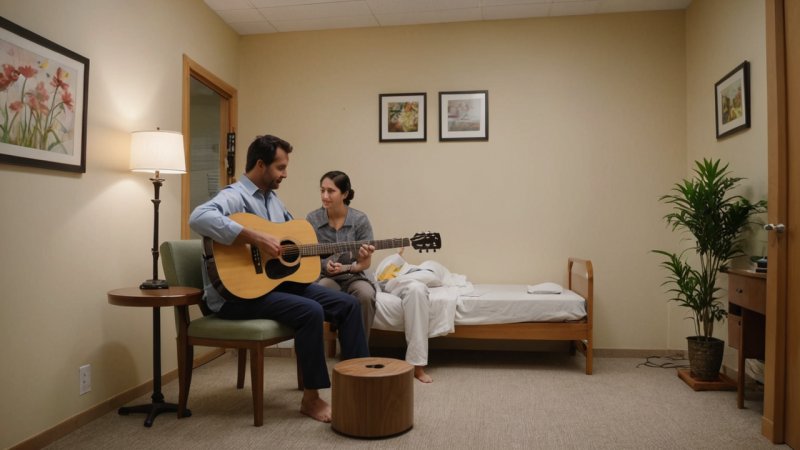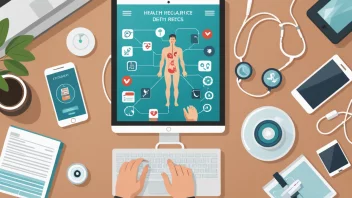Music therapy is an innovative and effective approach to healthcare that utilizes the therapeutic qualities of music to promote healing and well-being. As research continues to uncover the profound effects of music on the human brain and body, healthcare professionals are increasingly integrating music therapy into treatment plans for a variety of conditions. This article explores five key ways music therapy is being utilized in healthcare settings, highlighting its benefits and the transformative impact it has on patients.
1. Alleviating Pain and Discomfort
One of the most significant applications of music therapy is its ability to alleviate pain and discomfort in patients. Studies have shown that listening to music can trigger the release of endorphins, the body’s natural painkillers, leading to reduced perceptions of pain. In clinical settings, music therapy is often used in conjunction with traditional pain management strategies. Here are some notable findings:
- Patients undergoing surgery reported lower levels of pain and anxiety when music was played during the procedure.
- Music therapy has been found to reduce the need for pain medication in post-operative patients.
- Chronic pain sufferers have experienced improved quality of life through regular music therapy sessions.
2. Enhancing Mental Health
Music therapy has been shown to be particularly beneficial for individuals struggling with mental health issues such as depression, anxiety, and PTSD. The emotional expression facilitated by music can provide a safe outlet for feelings and thoughts. Key aspects include:
- Music therapy sessions often involve improvisation, allowing patients to express their emotions creatively.
- Research indicates that patients participating in music therapy experience significant reductions in symptoms of anxiety and depression.
- Group music therapy fosters a sense of community and support among participants, which can be particularly healing.
3. Supporting Cognitive Function
For patients with cognitive impairments, such as those with Alzheimer’s disease or other forms of dementia, music therapy can play a vital role in preserving cognitive function and enhancing memory. The following points highlight its effectiveness:
- Familiar music can evoke memories and emotions, helping patients reconnect with their past.
- Music therapy encourages engagement and participation, which can slow cognitive decline.
- Structured music activities can improve attention and focus in patients with cognitive impairments.
4. Aiding Physical Rehabilitation
Music therapy is also increasingly recognized for its role in physical rehabilitation. The rhythmic elements of music can motivate patients to engage in physical activities, making rehabilitation more enjoyable. Consider these benefits:
- Rhythmic auditory stimulation can improve motor skills and coordination in stroke patients.
- Patients recovering from injuries often find music therapy helps them stay motivated and engaged in their rehabilitation exercises.
- Music can enhance physical performance by synchronizing movements, which is especially useful in therapeutic settings.
5. Creating Comfort in End-of-Life Care
In palliative and hospice care, music therapy provides comfort and emotional support to patients and their families during difficult times. Its role in end-of-life care includes:
- Music therapy can help patients express their feelings about dying, facilitating important conversations.
- Listening to soothing music can create a peaceful environment, reducing anxiety for both patients and loved ones.
- Music can serve as a means of legacy, allowing patients to share their stories and memories through song.
In conclusion, music therapy is proving to be a powerful tool in healthcare settings, offering a wide range of benefits from pain management to cognitive support. As the field of music therapy continues to grow, it is essential to recognize its potential in improving patient outcomes and enhancing the overall healthcare experience. By embracing the healing power of music, healthcare professionals can provide more holistic and compassionate care to those in need.






